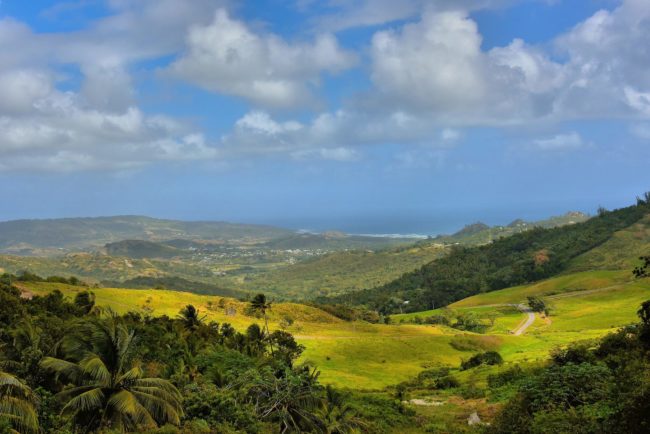After significant negotiation over several years the countries of the world agreed on a Global Diversity Framework (GBF) to underpin global biodiversity conservation efforts to 2050. What does this mean for Barbados? “The world is losing biodiversity, the variety of all life on earth, at an alarming rate,” says the International Institute for Sustainable Development in its report on the 15th Conference of the Parties (COP15) of the Convention on Biodiversity (CBD) where the GBF was adopted on December 19th. This loss refers to both individual species and whole ecosystems. The report notes that “Ecosystems, from forests and deserts to freshwater and oceans, are in steep decline. One million plant and animal species are threatened with extinction. Genetic diversity is disappearing. The planet’s life-support systems are at stake.”
The CBD was adopted in 1992 at the UN Conference on Environment, and Development (the Rio “Earth Summit”), and entered into force in 1993. There are currently 196 parties to the CBD. Barbados is one and was represented at the recent COP. The Global Diversity Framework aims to “…catalyse, enable and galvanise urgent and transformative action by Governments, subnational and local governments, and with the involvement of all of society to halt and reverse biodiversity loss”.
The GBF vision is that “by 2050, biodiversity is valued, conserved, restored and wisely used, maintaining ecosystem services, sustaining a healthy planet and delivering benefits essential for all people.” It has four goals that align with the vision:
Maintaining, enhancing or restoring ecosystems by 2050
Using biodiversity sustainably recognizing nature’s contributions to people
Sharing the monetary and non-monetary benefits from genetic resources fairly and equitably
Ensuring adequate resources to fully implement the GBF.

“One million plant and animal species are threatened with extinction. Genetic diversity is disappearing. The planet’s life-support systems are at stake.”
Countries agreed on 20 targets needed to reach the goals; too many to review here. However, some major targets are particularly relevant to Barbados and how we should approach development in the coming years. The most significant targets for Barbados are 2 and 3 which are that by 2030 “degraded terrestrial, inland water, and coastal and marine ecosystems are under effective restoration” and that “at least 30 per cent of terrestrial, inland water, and of coastal and marine areas, especially areas of particular importance for biodiversity and ecosystem functions and services, are effectively conserved and managed”.
These targets will be a challenge for Barbados where most of our coastal and nearshore marine ecosystems are substantially degraded. To meet the restoration target Barbados will finally have to get serious about managing coastal fishing after decades of dodging the issue. Similarly, it will have to put teeth into its legislation on marine pollution from the land, which is target 7. Having some corals being grown in nurseries does not constitute restoration either if the conditions that caused the corals to die in the first place – overfishing and pollution – are not reversed. Reversing these is essential for restoration.
Barbados is also lagging regarding terrestrial protected areas and not much further ahead with marine ones (we have one). Indeed, we as yet have no formal protected areas on land under our Open Space system. Declaring that we have a National Park without putting management measures in place does not constitute effective conservation and management. So it cannot count to our 30 per cent without serious action to operationalize it. Nor can the variety of conservation areas and national forest sites named in the Physical Development Plan with no institutional arrangements in place be counted. There is a term for such areas – ‘paper-parks’.
The link between nature and climate change resilience is indisputable. So, if Barbados is to live up to its new international image as climate change advocate and defender it will have to stop destroying the few remaining land ecosystems, however small, mobilise rapidly to initiate restoration activities for all ecosystems and establish properly managed conservation areas and national forests to meet the 2030 targets. We have much to do to be true to the theme of the GBF “Building a world living in harmony with nature”.
The Land Conservancy (TLC) Barbados is a new Non-Governmental Organization (NGO).
https://tlcbarbados.com/




